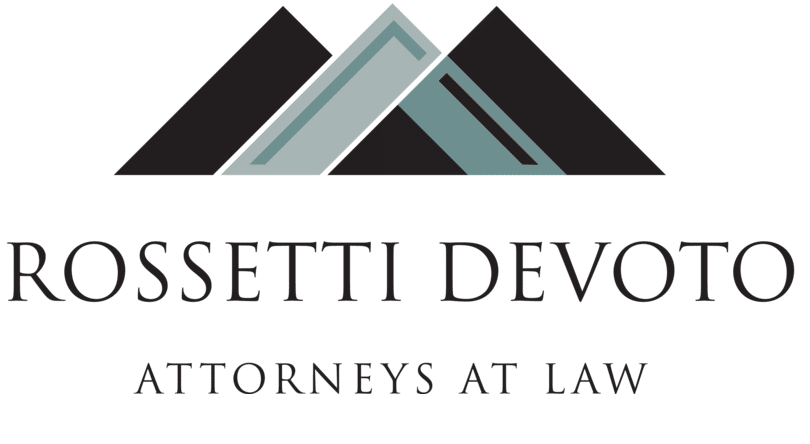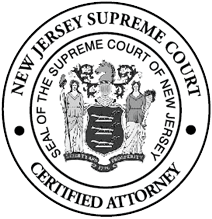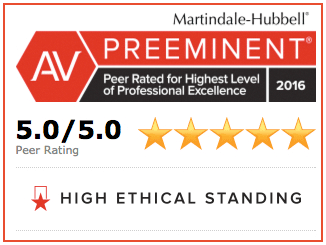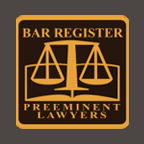Your Essential Guide to Wrongful Death New Jersey Claims and Laws
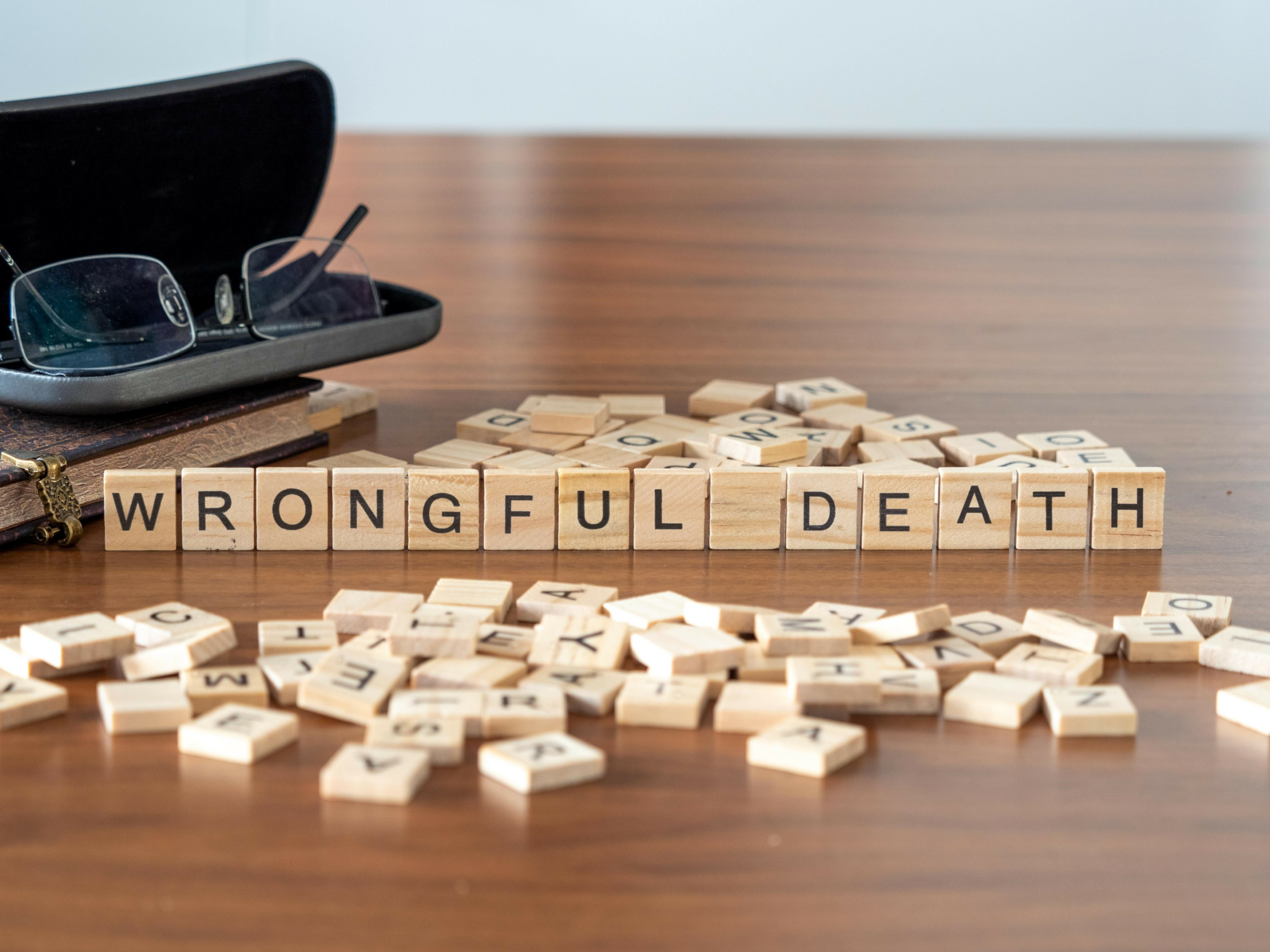
In New Jersey, if your family is confronting the wrongful death of a loved one, knowing where to start can feel daunting. This guide aims to simplify that process: who can file, what financial compensation involves, and the outlines of navigating New Jersey’s wrongful death legal system. It’s a direct path to understanding your rights, the statute’s specifics, and how to proceed with a sound claim related to wrongful death New Jersey.
Key Takeaways
- New Jersey’s wrongful death statute provides compensation for expenses related to medical care, funeral arrangements, and loss of future financial support, and requires expert legal navigation due to its complexities.
- The statute of limitations for filing a wrongful death claim in New Jersey is two years from the date of death, with some exceptions that can extend this period under specific circumstances.
- Wrongful death claims can result in compensation for both economic and non-economic damages, although New Jersey law excludes recovery for emotional distress and pain and suffering of the estate, with limited exceptions.
👉Also Read: When Tragedy Strikes: Pursuing Wrongful Death Claims in New Jersey Courts
Navigating New Jersey’s Wrongful Death Statute
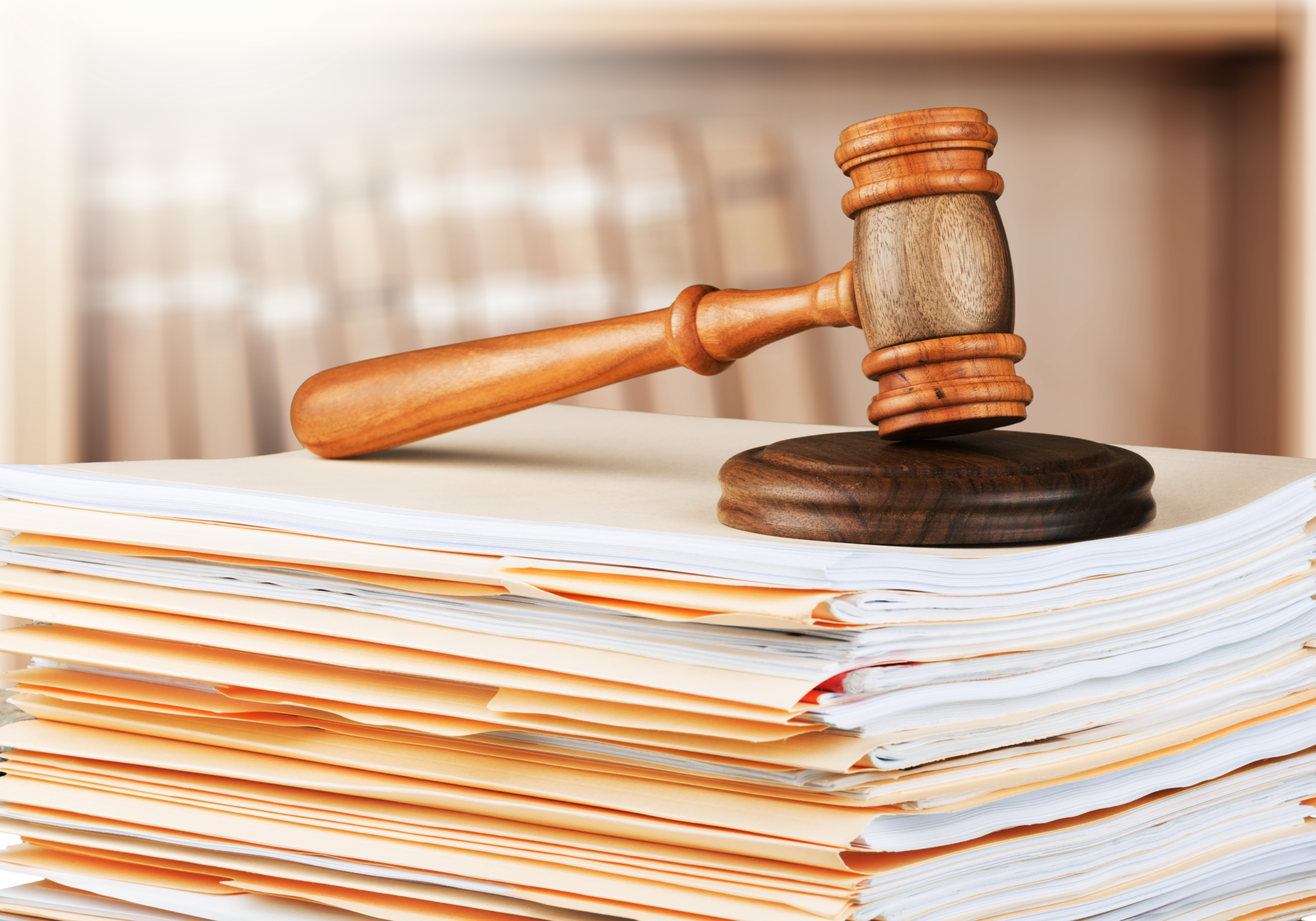
New Jersey’s wrongful death statute is a beacon of hope for those seeking justice for a loved one’s untimely death. This legal provision allows for the compensation of expenses related to medical care, funeral arrangements, and the loss of future financial support and services that the deceased would have provided to the dependents.
Wrongful death claims can arise from a variety of fatal incidents, from on-the-job accidents due to employer negligence to collisions caused by impaired drivers. In such cases, a Jersey wrongful death lawyer can provide invaluable assistance in navigating the complexities of the legal process.
While the statute provides a legal pathway toward justice, it is important to note that the process of filing a wrongful death claim can be complex and often requires the expertise of a seasoned wrongful death attorney. A qualified wrongful death attorney can help you with the following:
- Understand the nuances of New Jersey’s wrongful death statute
- Negotiate with insurance companies
- Evaluate damages
- Secure fair compensation
Understanding the Basics of a Wrongful Death Claim in New Jersey
A wrongful death in New Jersey is legally defined as a death resulting from a wrongful act or negligent act committed by another party. This definition helps determine legal responsibility and potential compensation for the deceased person’s family. This means that if a person’s death is a result of someone else’s negligence, their estate has the right to bring a wrongful death lawsuit against the responsible party. However, to establish a wrongful death claim, it is essential to prove that the defendant’s negligence directly caused the death. Furthermore, the decedent should have had grounds for a personal injury claim had they survived.
Wrongful death claims can stem from various scenarios such as:
- Failures in property safety
- Inadequate product warnings
- Negligent employee background checks
- Vehicle safety lapses
The NJ Wrongful Death Act allows the estate of the decedent to seek compensation for the economic value of the decedent’s life and future support and services they would have provided.
Key Differences Between Wrongful Death and Personal Injury Lawsuits
While both wrongful death and personal injury lawsuits seek to establish liability and recover damages for harm caused by negligence, there are key differences between the two. In a wrongful death lawsuit, the estate of the deceased victim is the plaintiff, unlike a personal injury lawsuit where the injured individual themselves is the plaintiff. This fundamental difference impacts not only the parties involved in the lawsuit but also the types of damages that can be recovered.
Initiating a Wrongful Death Lawsuit in New Jersey
Initiating a wrongful death lawsuit involves a series of steps. The first step is to determine the applicability of the claim and identify the accountable party or parties. This process will involve gathering key evidence for the claim, which may include:
- The death certificate
- Relevant medical and police reports
- The decedent’s salary slips and tax returns
- Any physical evidence, photographs, videos, and witness testimonies
Once the eligibility of the claim is established and the responsible party identified, the process of strategic preparation for negotiations begins. This could potentially lead to settling outside of court, or if necessary, drafting and filing a formal complaint with the civil court.
Retaining a wrongful death attorney can significantly help families with the claim filing process, as attorneys manage:
- Investigations
- Expert hiring
- Claims filing
- Negotiations
- Litigation
Eligibility Criteria: Who Can File a Wrongful Death Claim?
The eligibility to file a wrongful death claim in New Jersey extends to surviving family members like parents, spouses, and children, as well as to grandchildren, nieces, nephews, or any individuals who were financially dependent on the deceased. However, it is important to note that under New Jersey law, a wrongful death claim must be filed by the personal representative of the deceased’s estate.
The Role of the Personal Representative in a Wrongful Death Suit
In a wrongful death suit, the personal representative of the deceased’s estate holds significant responsibility. They are responsible for filing the wrongful death lawsuit on behalf of the deceased person’s estate. If the deceased person did not name a personal representative in their will, the court will appoint an administrator to act as the personal representative to file the wrongful death lawsuit.
The role of the personal representative includes:
- Filing the claim
- Collecting and presenting evidence to support the wrongful death claim
- Proving the defendant’s fault
- Documenting damages
This role is crucial in ensuring that the estate and the dependents of the deceased are adequately compensated for their loss.
Financial Implications of a Wrongful Death Case
A wrongful death case is not just about seeking justice for a loved one’s untimely death; it also has significant financial implications for the surviving dependents. In New Jersey, plaintiffs in a wrongful death case can seek compensation for:
- Medical and hospital bills
- Funeral costs
- Lost wages
- Lost services
- Out-of-pocket costs incurred due to the death
- The expected earnings of the deceased, which contribute to financial support for survivors
These can all be included in a wrongful death damages claim.
Compensation in a wrongful death lawsuit covers:
- Economic damages, such as medical expenses, funeral costs, and lost income
- Non-economic damages, such as the loss of companionship, care, advice, and guidance that the deceased would have provided to their dependents
- The value of household services the deceased would have provided
Therefore, it is clear that the financial implications of a wrongful death case can be far-reaching, affecting various aspects of the dependents’ lives.
Recoverable Damages in a New Jersey Wrongful Death Lawsuit
In a wrongful death lawsuit in New Jersey, the decedent’s estate can claim compensation for the economic value of the decedent’s life, which includes future financial support and services they would have provided to their dependents. Survivors are also entitled to compensation for medical, funeral, and burial expenses that resulted from the decedent’s final illness or injury.
Non-economic damages for the loss of companionship are also recoverable in New Jersey. This addresses the emotional impact on survivors due to the wrongful death.
Upon the settlement of a wrongful death claim, the proceeds are apportioned by a court among the entitled individuals, with considerations taken into account such as each beneficiary’s dependency and other factors.
Limitations on Damages: What New Jersey Law Excludes
While New Jersey law allows for a broad range of damages in wrongful death cases, there are certain limitations on what can be claimed. The state’s Wrongful Death statute does not permit the recovery of non-pecuniary damages such as emotional distress, pain, and suffering. The estate of the deceased may not seek compensation for their emotional pain and suffering in a wrongful death lawsuit, with a limited exception for family members who witness the death.
Furthermore, punitive damages, which are intended to punish the defendant and deter future similar conduct, are generally not permitted in New Jersey wrongful death claims. Understanding these exclusions is crucial for setting realistic expectations about the potential compensation from a wrongful death lawsuit.
Critical Timelines: The Statute of Limitations for Wrongful Death in New Jersey
Every legal action is subject to a statute of limitations, which is a law that sets the maximum time after an event within which legal proceedings may be initiated. In New Jersey, the statute of limitations for wrongful death claims is two years from the date of the decedent’s passing. It is important to be aware of this timeframe when pursuing legal action. This means that the claim must be filed within two years from the date of death, or it may be barred by the court.
While the standard statute of limitations for wrong
Exceptions to the Statute of Limitations
ful death claims in New Jersey is two years, there are potential exceptions to this rule that can extend this deadline. It is important to understand these timelines and exceptions, as failing to adhere to the statute of limitations can result in the loss of the right to pursue a wrongful death claim.
Despite the standard two-year statute of limitations for wrongful death claims in New Jersey, some exceptions can extend this deadline. Other exceptions to the statute of limitations include scenarios where the claimant is a minor or suffering from physical or mental incapacitation. In the former case, the statute of limitations generally begins when they reach the legal age of 18. In the latter, the statute of limitations can be tolled until they recover the capacity to proceed with their claim.
Legal Strategies for Wrongful Death Claims
In a wrongful death lawsuit, having a sound legal strategy is crucial for a successful outcome. From establishing the defendant’s negligence to utilizing expert testimony, various tactics can be employed to strengthen a wrongful death claim. Some key strategies to consider include:
- Gathering evidence to prove negligence or wrongful conduct
- Identifying all potentially liable parties
- Calculating the full extent of damages, including economic and non-economic losses
- Presenting expert testimony to support your claim
- Building a strong case through thorough investigation and preparation
Seeking the counsel of wrongful death lawyers promptly is crucial to ensure the right to compensation is not lost due to the expiration of the statute of limitations.
A wrongful death attorney can provide the following services:
- Guide the survivors through the complex legal process
- Offer advice on potential compensation
- Help gather the necessary evidence
- Represent them in court if required
- Help with understanding the nuances of the law
- Negotiate with insurance companies
- Secure fair compensation
Proving Negligence in a Wrongful Death Action
To establish a party’s liability in a wrongful death lawsuit in New Jersey, four elements must be shown:
- Duty: It must be proven that the defendant had a duty of care towards the decedent.
- Breach: The defendant must have breached this duty.
- Causation: The breach must be the direct cause of the decedent’s death.
- Damages: The death must have resulted in damages.
Proving causation is especially critical in a wrongful death claim. This involves demonstrating that the death would not have occurred but for the negligence of the defendant. This is often the most contentious part of a wrongful death lawsuit and requires solid evidence and expert testimony.
Utilizing Expert Testimony in Wrongful Death Cases
Expert witnesses play a vital role in wrongful death cases. They provide critical evidence and testimony, which is essential in supporting the claim. They can help establish the defendant’s breach of duty, causation, and the damages suffered due to the wrongful death.
There are several types of expert witnesses that can be called upon in a wrongful death case. Liability experts explain the details of the accident and establish the defendant’s negligence. Economic experts, on the other hand, calculate the financial loss to the dependents of the deceased, which includes projecting potential future earnings and benefits.
The use of expert testimony can significantly strengthen a wrongful death claim and increase the likelihood of a favorable outcome.
Additional Legal Remedies: Survival Actions and Punitive Damages
In addition to a wrongful death claim, survivors may also pursue additional legal remedies under New Jersey law. These include survival actions and punitive damages. Survival actions allow the decedent’s estate to recover damages that the decedent could have pursued had they survived, including compensation for conscious pain and suffering experienced prior to death.
On the other hand, punitive damages are awarded in extreme cases where the defendant’s actions are deemed particularly reprehensible, showing a willful or wanton disregard for others’ safety. These damages serve a punitive role by punishing the defendant for their egregious conduct and a deterrent role by discouraging similar future behavior.
Distinction Between Survival Claims and Wrongful Death Claims
While both survival and wrongful death claims seek to compensate for losses resulting from a person’s untimely death, they differ in significant ways. A survival action in New Jersey may include recovery of the deceased’s damages such as medical expenses, lost wages, and notably, conscious pain and suffering. These damages are distributed in accordance with the deceased’s will or, if no will exists, following the state’s intestacy laws.
In contrast, wrongful death claims in New Jersey do not account for the decedent’s pain and suffering prior to death. Instead, they focus on the financial and relational losses suffered by the heirs. These losses may comprise:
- Economic support
- Guidance
- Advice
- Companionship lost due to the death
But they do not include compensation for sorrow or emotional distress. Upon settlement, the proceeds are apportioned by a court among the entitled individuals, considering each beneficiary’s dependency and other factors.
Seeking Punitive Damages in Extreme Cases
In cases where the defendant’s actions are particularly egregious or reckless, it may be possible to seek punitive damages in addition to compensatory damages. Punitive damages in New Jersey wrongful death lawsuits are awarded when the defendant’s actions are deemed particularly reprehensible, showing a willful or wanton disregard for others’ safety.
Punitive damages serve a dual purpose. They not only serve to punish the defendant for their egregious conduct but also act as a deterrent, discouraging similar future behavior. However, it’s worth noting that seeking punitive damages requires a higher burden of proof and is usually reserved for the most extreme cases.
👉Also Read: Seeking Accountability: Filing a Wrongful Death Lawsuit in New Jersey
Take Action Today for Your Wrongful Death Case
When facing the complexities of wrongful death lawsuits, having the right legal representation is crucial. At Rossetti & Devoto, P.C., we have a team of experienced lawyers who have successfully handled numerous wrongful death cases in New Jersey and Pennsylvania. We are big enough to inflict serious damage on defendants yet small enough to be nimble and move quickly. When you choose us, you get immediate action. Here’s what we offer:
- We immediately hire investigators, safety experts, engineers, and accident reconstructionists.
- We preserve evidence.
- We undertake site inspections swiftly.
In addition to our comprehensive legal services, we also offer a free consultation to discuss your case. We can provide you with valuable insights about your rights and explain New Jersey’s Wrongful Death Act and Survival Act in detail. Our expert advice can be invaluable in navigating the legal landscape of wrongful death claims and ensuring the best possible outcome for your case.
Contact us today to schedule your free consultation and learn how Rossetti & Devoto, P.C. can help you pursue justice for your wrongful death case.
